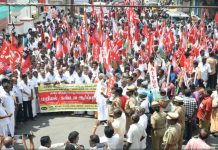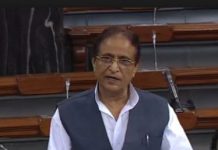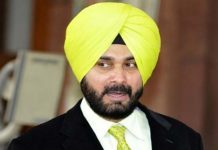
Photo: Deepak Salvi
A separate inquiry by a judge found that on June 28, 2008, Walmiki had been dragged out of his cell and beaten up even though “there was no breach of discipline” on his part. In the case of another under-trial, Tanvir, Nalawade found that “the nature of his injury was such that he did not appear to be the aggressor but [the] defender and he was perhaps running away from the assault.”
No less shocking is the role of the prison doctors. Nalawade found that nearly all the injuries of the prisoners attacked that day were made by “hard and blunt” objects. Quoting him, the High Court judges write: “The injuries recorded in the medical certificate of the jail authority were manipulated in order to help the jail authority… The jail Doctors did not find injuries on the person of the prisoners, which were found by the Government Hospitals even after 20 to 23 days. The role of these [jail] doctors is reprehensible and shameful.” The judges ordered that “inquiry be also initiated against the Jail Doctors for dereliction of duty and for fudging the record”.
AKEY POINT that the High Court ruling establishes on both prison law and prisoners’ rights relates to the reason behind the assault. Jail authorities told the High Court that the prisoners had rebelled when they were being shifted to jails outside Mumbai. With a capacity to house only 800 prisoners, the Central Prison was overflowing with 2,500 inmates, and it was decided to shift these prisoners as the Supreme Court had stayed their trial and so, they weren’t needed to visit the trial courts for regular hearings.
The High Court judges, rule this, too, was illegal, saying that a judge should have heard the inmates before approving their transfer. Then, citing a rule that says “no prisoner shall be removed without first ascertaining whether accommodation is available at the receiving prison”, the judges write: “There is nothing on record to show that the prisons where these prisoners were being removed had the accommodation available… They should be transferred back to the [Mumbai] jail at first.”
This week, I phoned Saeed at Pune. “We are thankful for this judgment,” he said. “We hope that, god willing, my father will be proved innocent.” Sohail continues to be in Nagpur Jail where he was transferred on June 28, 2008. He now awaits the Supreme Court ruling on his petition challenging the law under which he has been accused: the Maharashtra Control of Organised Crimes Act (MCOCA).
Sohail’s petition before the Supreme Court argues that trying terror cases under MCOCA is illegal as it violates a 1994 Supreme Court ruling that only Parliament could enact laws for counterterrorism. MCOCA is a state law that the Maharashtra Assembly had passed a decade ago.
For now, though, the under-trials savour the win at the High Court. “This is a landmark ruling because it says every action of prison authorities must pass the judicial eye,” lawyer Azmi said. “The prisoners have Constitutional rights, too.”
WRITER’S EMAIL
ajit@tehelka.com











